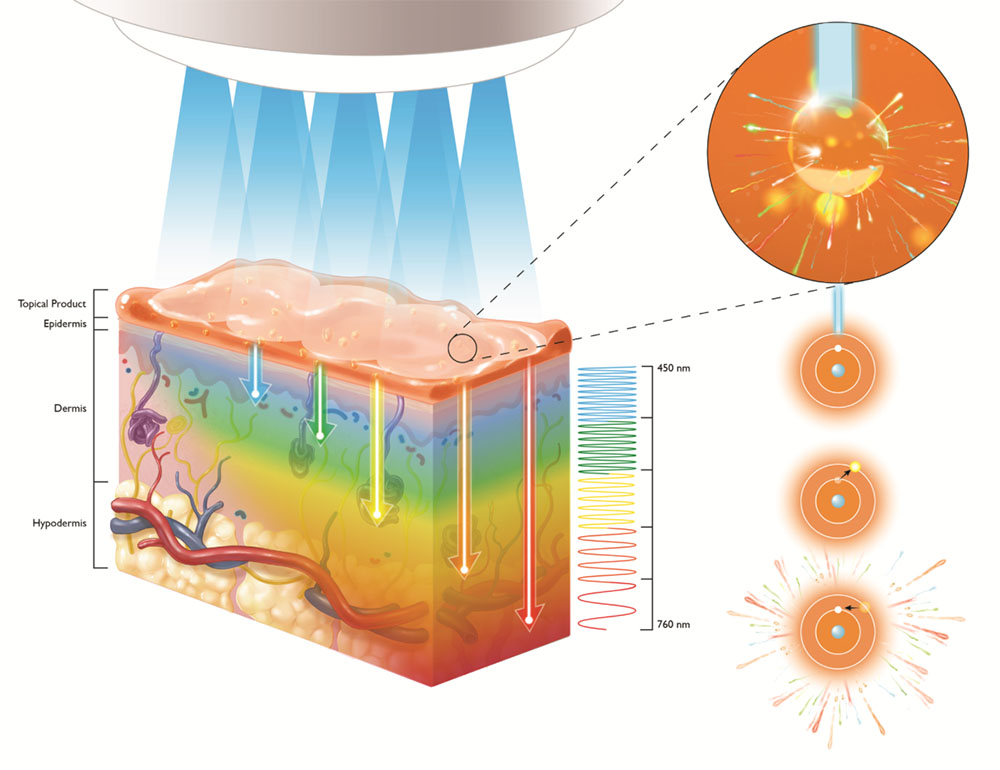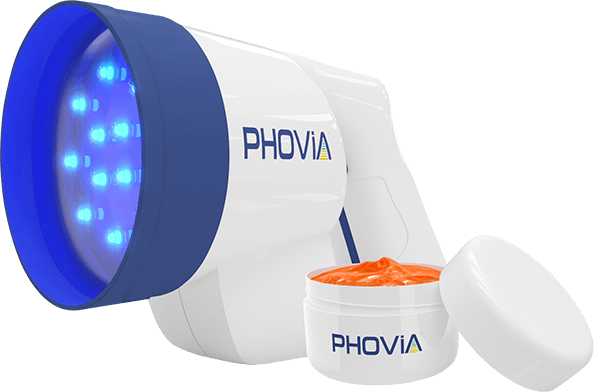Fluorescent light energy increases energy available for cell healing
Photobiomodulation (PBM) is a low-level form of light therapy that uses non-ionizing forms of light sources in the visible and near infrared spectrum.

How Photobiomodulation Works

Positively influences electron transfer and proton transportation
Increases mitochondrial ATP production
Increases the amount of energy available for the cell to heal1
Photobiomodulation was shown to stimulate
secretion of several growth factors including:1
- Epidermal Growth Factor (EGF)
- Vascular Endothelial Growth Factor (VEGF)
- Fibroblast Growth Factors (FGFs)
- Transforming Growth Factor Beta (TGF-β)
- Collagen production

Watch this video to learn about fluorescent light energy in Veterinary Medicine
Light penetration into the skin is variable. For example, red light penetrates deeper than blue light. Skin also consists of a range of chromophores, which have scattering and absorption coefficients, which are highly wavelength dependent. This video shows how Phovia targets multiple layers simultaneously.
References
- Marchegiani, A. et al. (2021) Current Applications and Future Perspectives of Fluorescence Light Energy Biomodulation in Veterinary Medicine. Vet Sci, Jan 25;8(2):20.